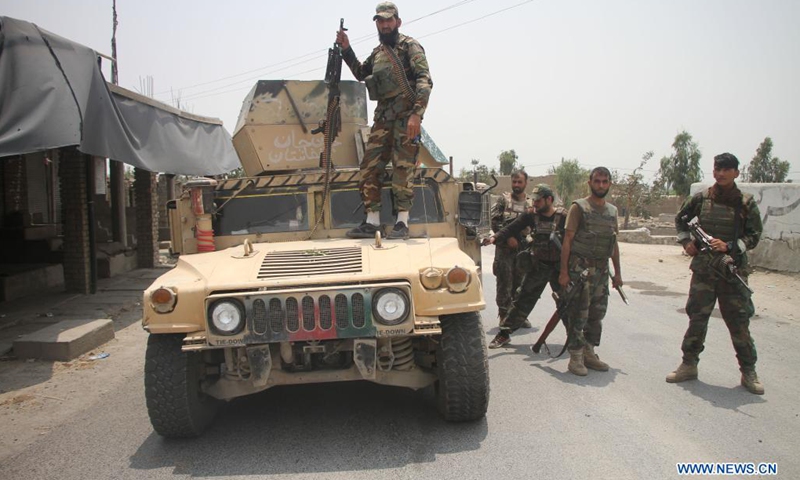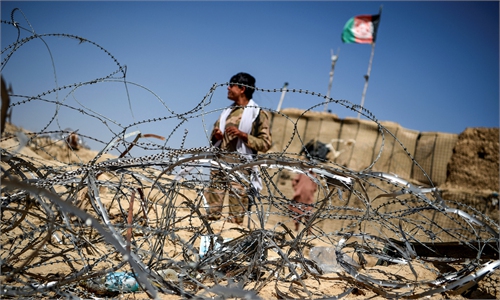Afghan govt-Taliban talks end in abortion
Two sides merely agree to ‘continue negotiations,’ prevent casualties

Afghan security force members take part in a military operation against Taliban militants in Alishing district of Laghman province, eastern Afghanistan, on July 12, 2021. Taliban militants have been intensifying activities to capture more districts, as the U.S. troops are completing the pull-out from Afghanistan. In the meantime, Afghan security forces have been conducting counter-offensives to foil the militant group's efforts.(Photo: Xinhua)
The latest talks between the Afghan government and Taliban in Doha ended without significant progress Sunday even after the insurgents' supreme leader said he "strenuously favours" a political settlement to the conflict.
Senior representatives of the Kabul government including head of the High Council for National Reconciliation Abdullah Abdullah flew in for two days of intensive talks as the hardline Islamist movement pushes a sweeping offensive across Afghanistan.
They had sought to revive long-stalled peace talks, but in a joint statement agreed on the need to reach a "just solution" and to meet again "next week."
Ahead of the second day of talks, Taliban supreme leader Hibatullah Akhundzada had said "the Islamic Emirate strenuously favours a political settlement" despite the groups lightning victories on the ground.
But the Qatari facilitator of the talks said at the end of the two days that the sides had merely agreed to "work to prevent civilian casualties," far short of previously agreed cease-fires."The two sides agreed to continue negotiations at a high level until a settlement is reached. For this purpose, they will meet again next week," said Qatar's counter-terrorism envoy Mutlaq al-Qahtani who oversees the talks for Doha.
For months, the two sides have been meeting intermittently in the Qatari capital, but have achieved little if any notable success. The discussions appear to have lost momentum as the militants made enormous gains on the battlefield.
Taliban leader Akhundzada has said his group remained committed to forging a solution to end the war, but slammed the group's opponents for "wasting time." The insurgents capitalized on the last stages of the withdrawal of US and other foreign troops from Afghanistan to launch a series of lightning offensives across the country.
The group is now believed to control roughly half of the nation's 400 districts, several important border crossings, and has laid siege to a string of vital provincial capitals.
A spokesman for the Afghan security forces said that pro-government fighters had conducted 244 operations, killing 967 "enemy" fighters.
"We have recaptured 24 districts so far, our goal is to retake all the territories... We are ready to defend our country," Ajmal Omar Shinwari told reporters.
The Taliban have long appeared to be united, operating under an effective chain of command and carrying out complex military campaigns despite perennial rumors of splits within their leadership.
But questions remain over how much control the Taliban's leaders have over commanders on the ground, and whether they will be able to convince them to abide by a potential agreement if signed.
Despite coming days ahead of the Eid holiday, the leader's statement notably made no mention of a formal call for a cease-fire.
Over the years, the Taliban have announced a series of short truces during Islamic holidays. However the group has been criticized for using the temporary cease-fires to resupply and reinforce their fighters, allowing them to launch withering onslaughts on Afghanistan's security forces once the truce expires.

